White Wine Vinegar vs White Vinegar: Know What's The Difference!
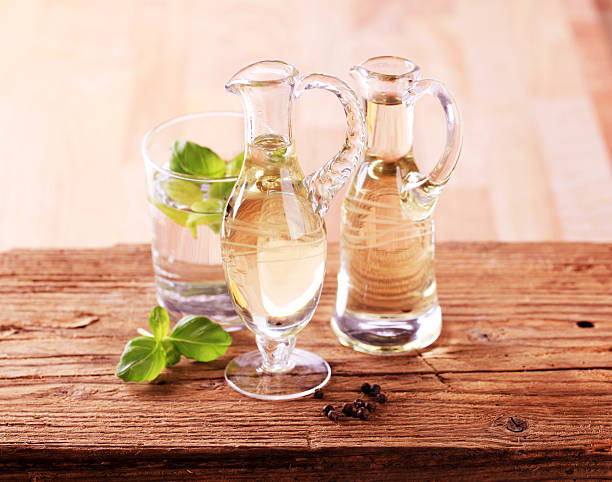
This article is for you if you ever find yourself in the middle of the grocery store, unsure which bottle of vinegar to choose. Although it may appear perplexing at first, each vinegar has a specific role in the kitchen and complements different dishes in different ways. One widespread misunderstanding is that white vinegar and white wine vinegar are interchangeable. In reality, their fermentation process and use are significantly different.
What is the difference between white wine vinegar and white vinegar?
White wine vinegar is formed by fermenting white wine further, whereas white vinegar, also known as distilled vinegar, is manufactured from distilled water and acetic acid. White vinegar is created by diluting acetic acid with distilled water.
What is Vinegar?
Vinegar begins with fruit and is transformed into wine or alcoholic beverage, ranging from beer to cider. After you’ve made your ethanol alcohol, you may add a bacterium culture to it, which will consume it. The fermentation process is what it’s called.
The by-products are broken down during the fermentation process. After the procedure is over, ensure there is no remaining alcohol and that your acidity level is greater than 5%. The only ingredients in white vinegar are distilled water and acetic acid. This is why white vinegar has a strong odor compared to wine vinegar or champagne vinegar.
What’s the difference between the different kinds of vinegar?
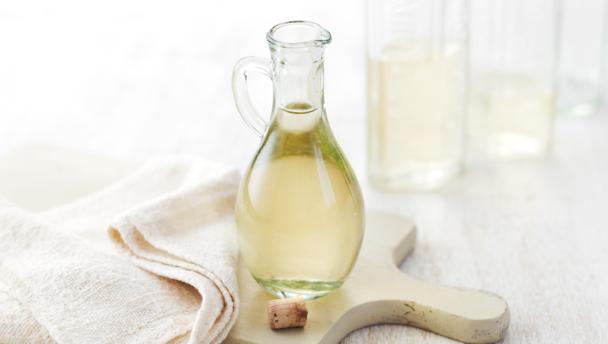
Each vinegar has a particular flavor and use; what you could use white wine vinegar for, you might not use red wine vinegar. This distinguishes each vinegar; we created a table that details the many varieties of vinegar to make it easier for you to distinguish between them.
Although it may be perplexing at first, having this table in the kitchen or even at the grocery store will assist you in determining which one you’ll be using for a particular meal.
Is pasteurized vinegar better than unpasteurized vinegar?
Pasteurized vinegar implies that the vinegar has been cooked, and the “mother” (a sticky bacteria that develops in the bottom of the vinegar jar or bottle) has been destroyed. You’ll be left with a clear vinegar bottle, and the customer will find this more tempting.
The mother will remain at the bottom of the vinegar if it is not pasteurized. As a result, your vinegar will be cloudier. The debate is whether unpasteurized vinegar maintains all of its health advantages or if the pasteurization procedure destroys any beneficial bacteria.
Characteristics of Pasteurized Vinegar
- it was heated to kill the “mother.”
- It tastes clean and fresh.
Unpasteurized Characteristics of Vinegar
- Cloudy
- It still has the “mother.”
Is it possible to substitute apple cider vinegar with any other vinegar?
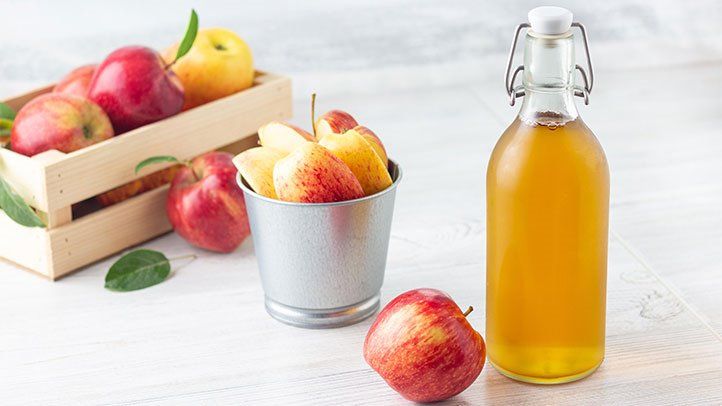
If your recipe asks for white wine vinegar and you’re scouring every shelf in your house for the white wine vinegar you swear you have, you may use a vinegar other than wine. Is it possible to substitute healing apple cider vinegar in your recipe? It’s a go if you have apple cider vinegar in your pantry. Apple cider has a delicious flavor that you won’t find in other kinds of vinegar.
Apple cider vinegar is one of the most versatile kinds of vinegar on the market. Because apple cider vinegar is manufactured from fermented apple cider, it may not be an acceptable option for those who dislike apples because it has a slight apple flavor. To answer your query, You may use apple cider vinegar to replace any vinegar. You’d use the exact quantity of vinegar that the recipe specifies; don’t go over or under.
How to make my vinegar substitutes?
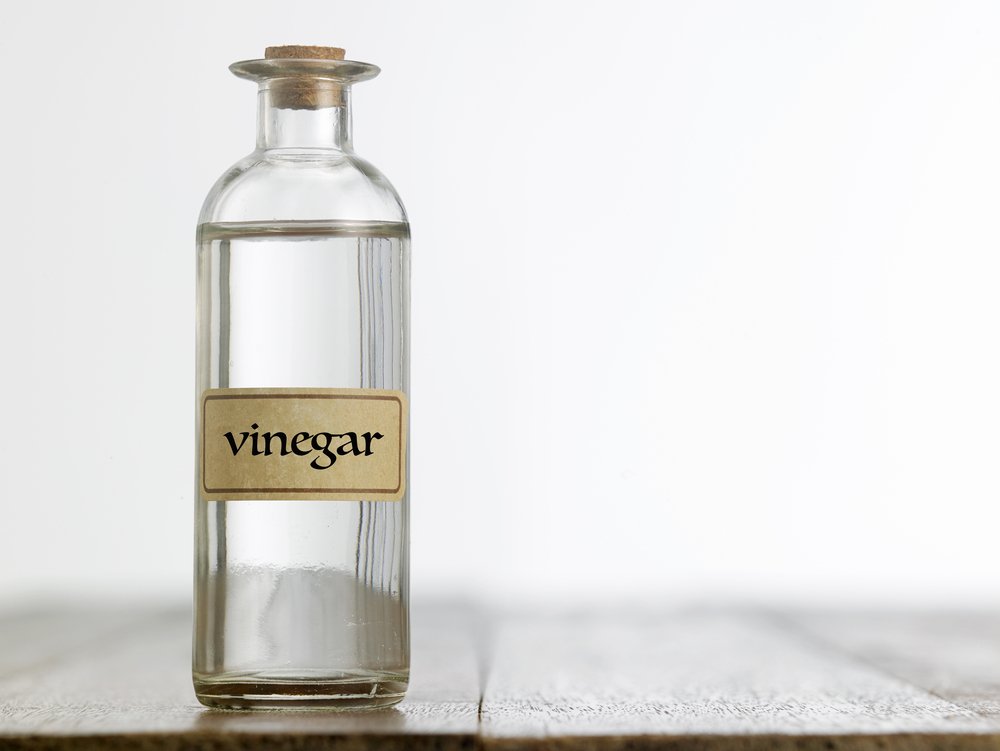
We don’t often think to keep a variety of vinegar in the kitchen. I frequently find myself unable to utilize a variety of kinds of vinegar since I only have white wine vinegar or apple cider vinegar on hand. You may need to substitute vinegar for other ingredients to continue with your recipe or acquire the results you need. The following table lists the many vinegar substitutes.
Is white cooking wine the same as white wine vinegar?
White cooking wine is often simply your everyday “cheap” wine from the supermarket. Typically, you’d utilize the final few drops of a wine bottle that had been lying in the fridge for a few days or a wine you didn’t like but couldn’t throw away. It would be a standard wine with no distinguishing characteristics.
Cooking wine is a type of wine that may be consumed while cooking. It’s in the wine meaning of the word. White wine vinegar is a unique product that is the vinegar source. It is oxidized fermented wine with microorganisms that have consumed all of the alcohol in the wine.
Although the two are sometimes confused, if a bottle of wine is left uncovered in your cellar for long enough, it will turn into vinegar. There is sometimes a cross-over between the two, and many people believe that if you keep cooking vinegar in the pantry or cellar long enough, you may use it as wine vinegar, which is not always the case. It all depends on where the cooking wine is in the fermenting process.
Always test the cooking wine before assuming that it will function the same and that you may substitute it.
Is it possible to substitute cooking wine for wine vinegar?
Because you’ll be using wine vinegar, you’ll need something acidic. It may be tough to replace wine vinegar for cooking wine when the recipe calls for it. You could have more success substituting it the other way around, especially if you’re trying to deglaze your pan.
Many individuals are seeking a non-alcoholic alternative to their favorite dishes. This might be due to religious beliefs or a lack of alcohol in the household. The easiest method to accomplish it is to use wine vinegar instead of cooking wine.
Consider the several varieties of vinegar available the next time you go grocery shopping. Please take a few and play around with them. The best way to know if you like something is to try it out! You could come across a new ingredient to use in your cooking. You may also use white wine vinegar instead of regular white vinegar on your French fries.
Can Wine Vinegar get spoiled?
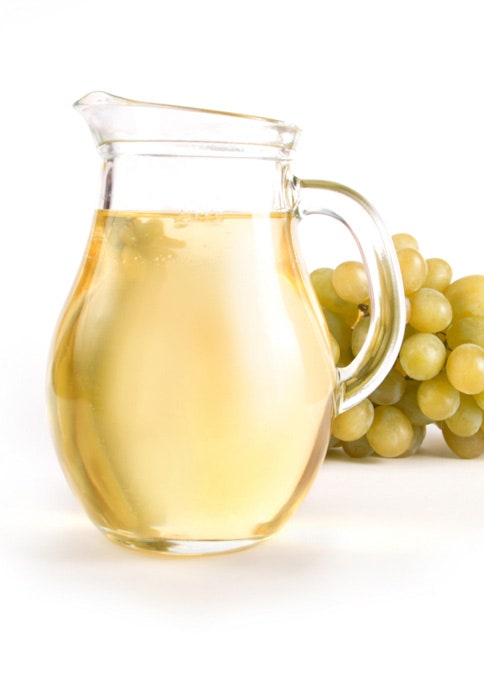
Most items in your pantry have a best before date; whether or not we follow those dates is up to us. Sure, you’ll lose some of the tastes or, in the case of vinegar, the vinegar won’t be as powerful as it would be if you used it before the best before date. Keep wine vinegar in the dark, cold area and ensure the seal is always properly sealed to extend its shelf life.
You’ll notice a breakdown of color and flavor with time, and by the time, we mean years. If you want to retain the wine vinegar for a more extended period, you may store it in the refrigerator. You won’t need to keep it refrigerated if it’s a kitchen staple that you’ll use over a few months. Just make sure your seal is secure and that you store it somewhere dark.











